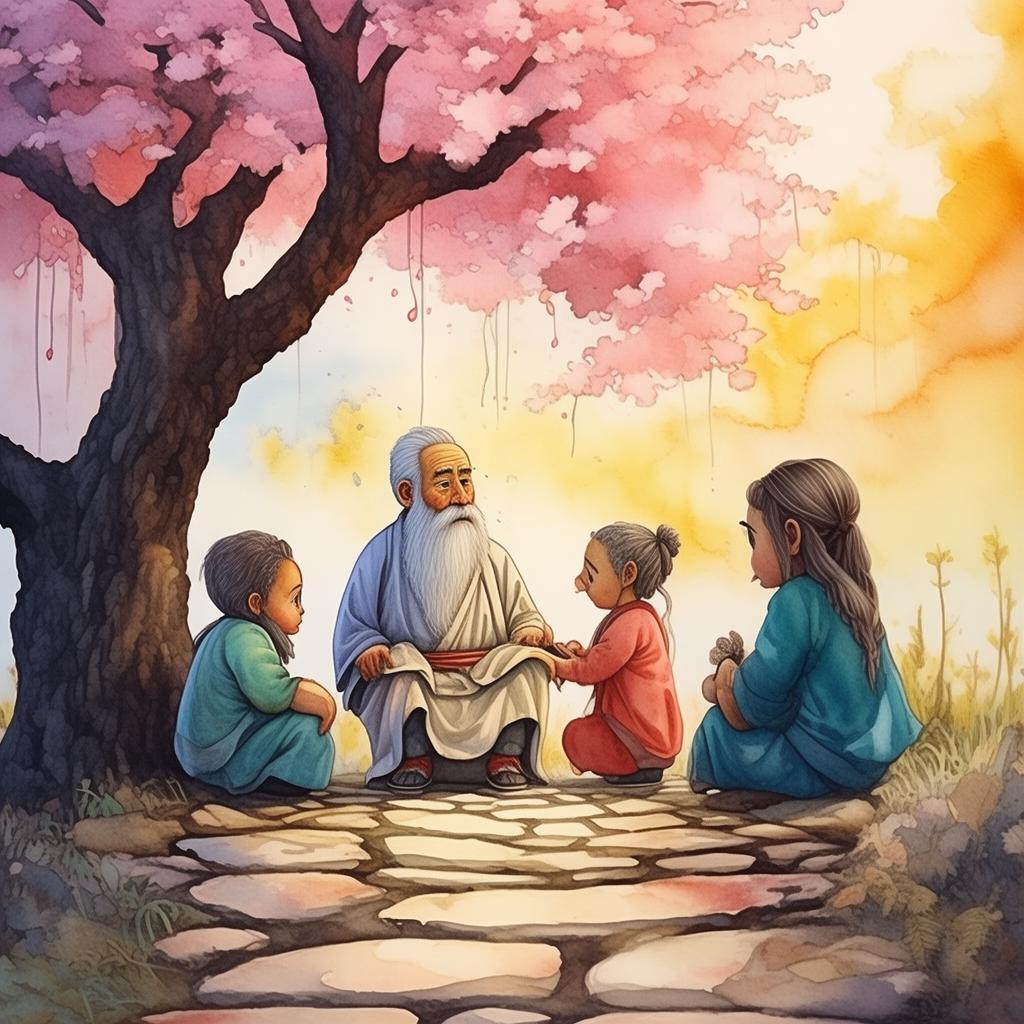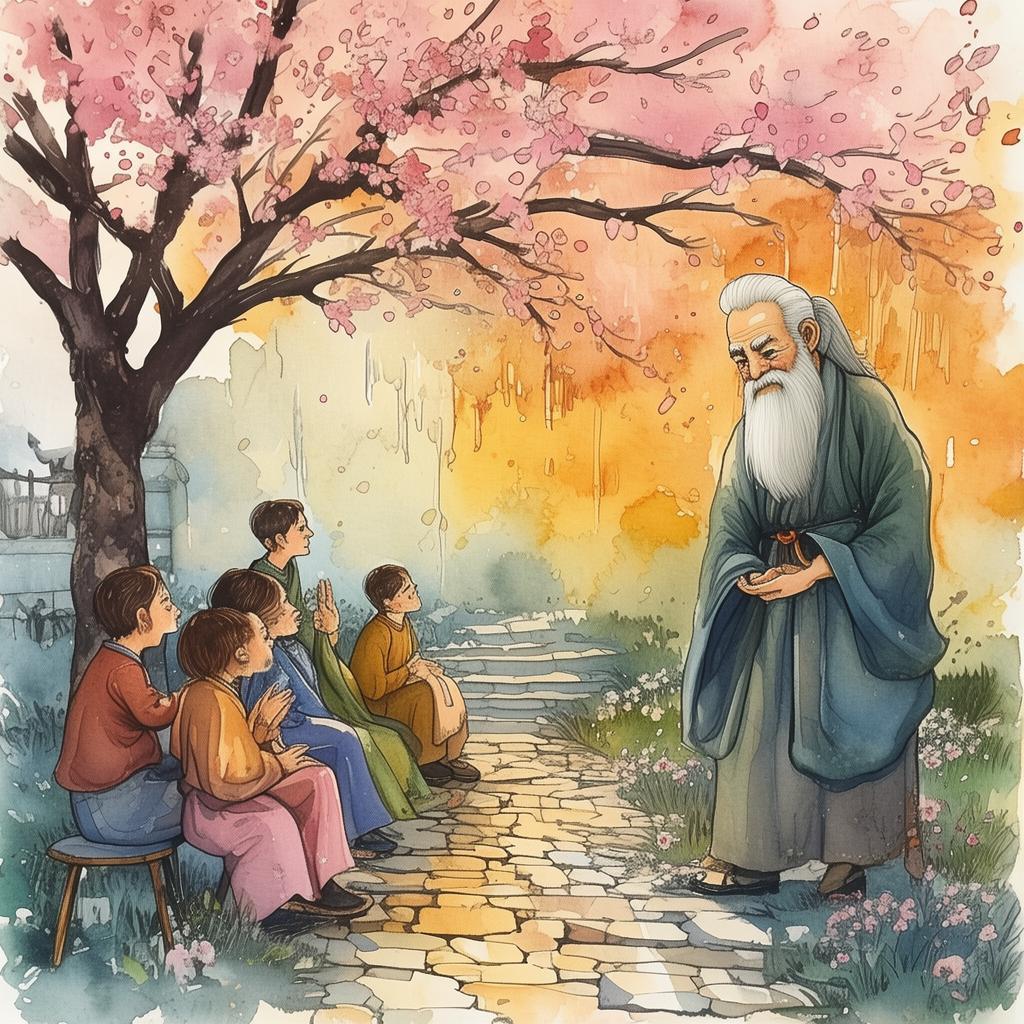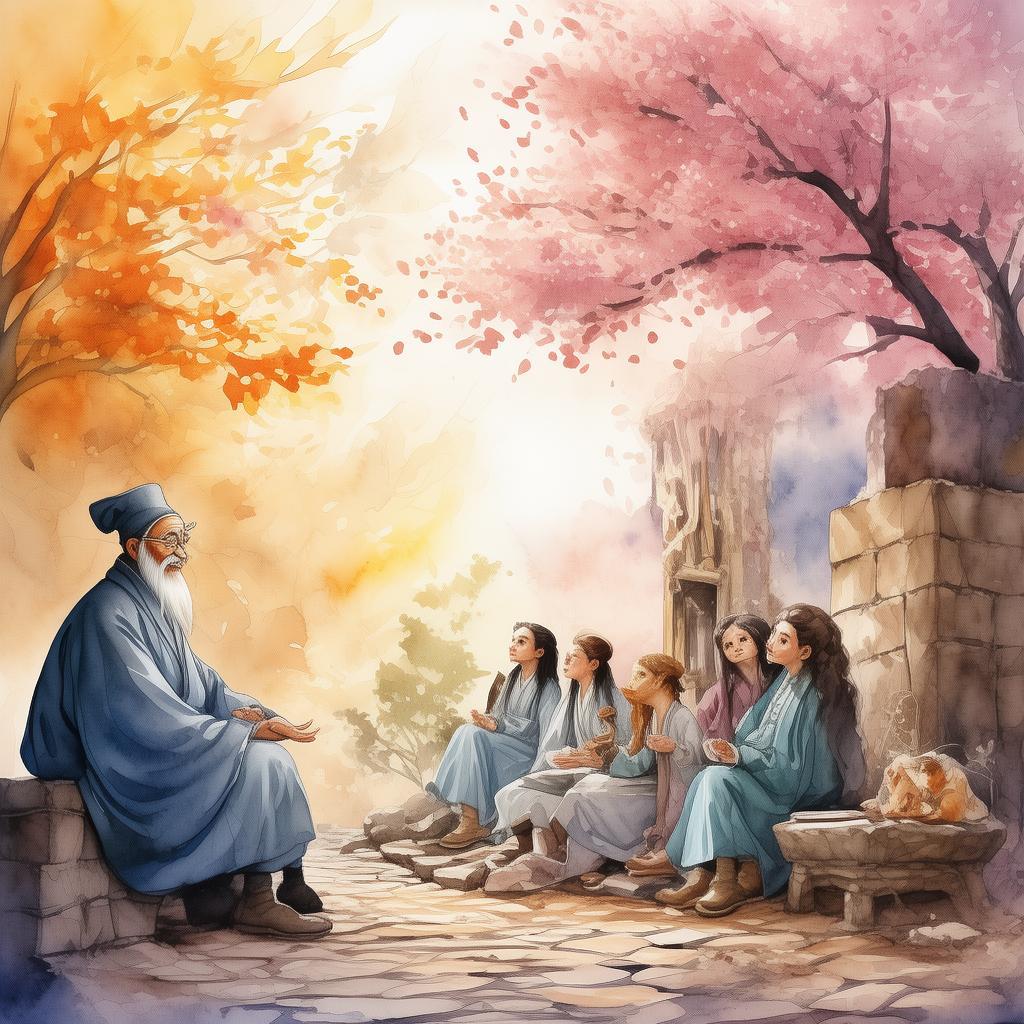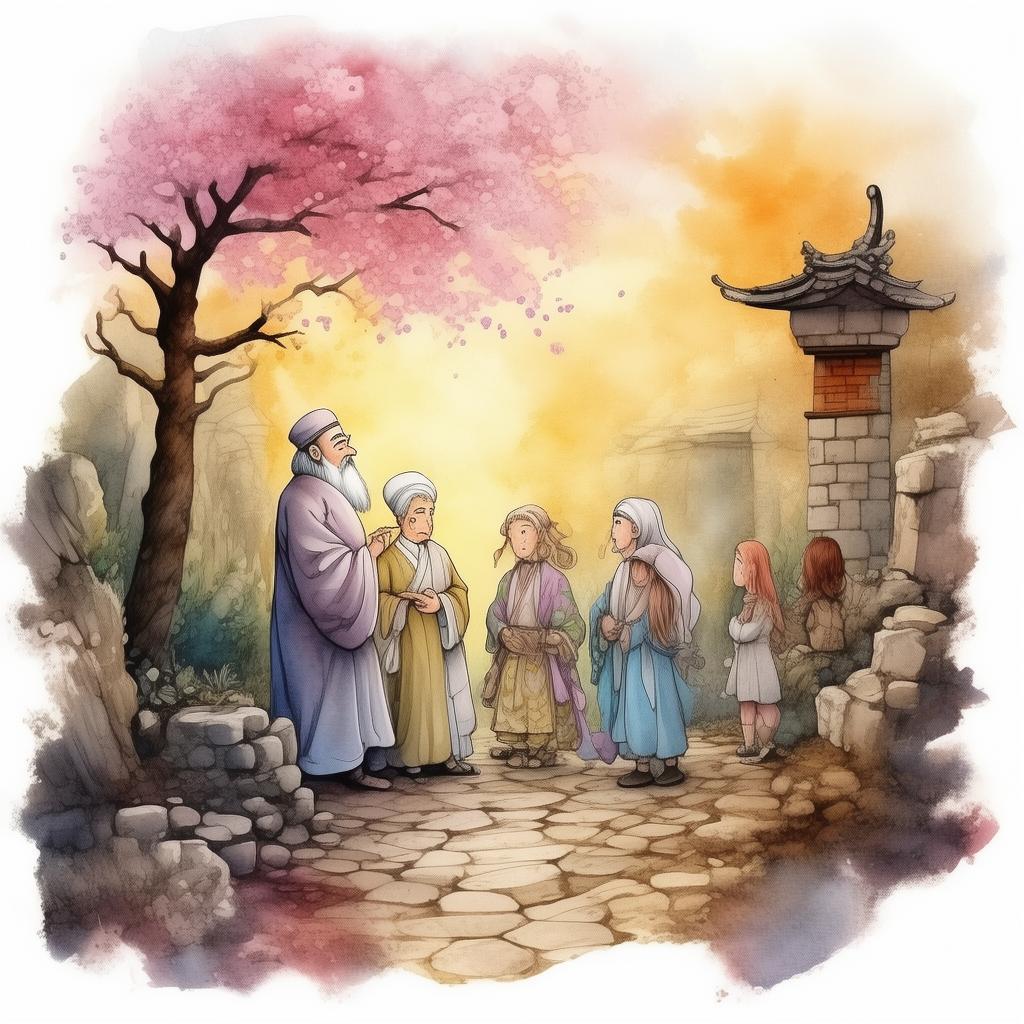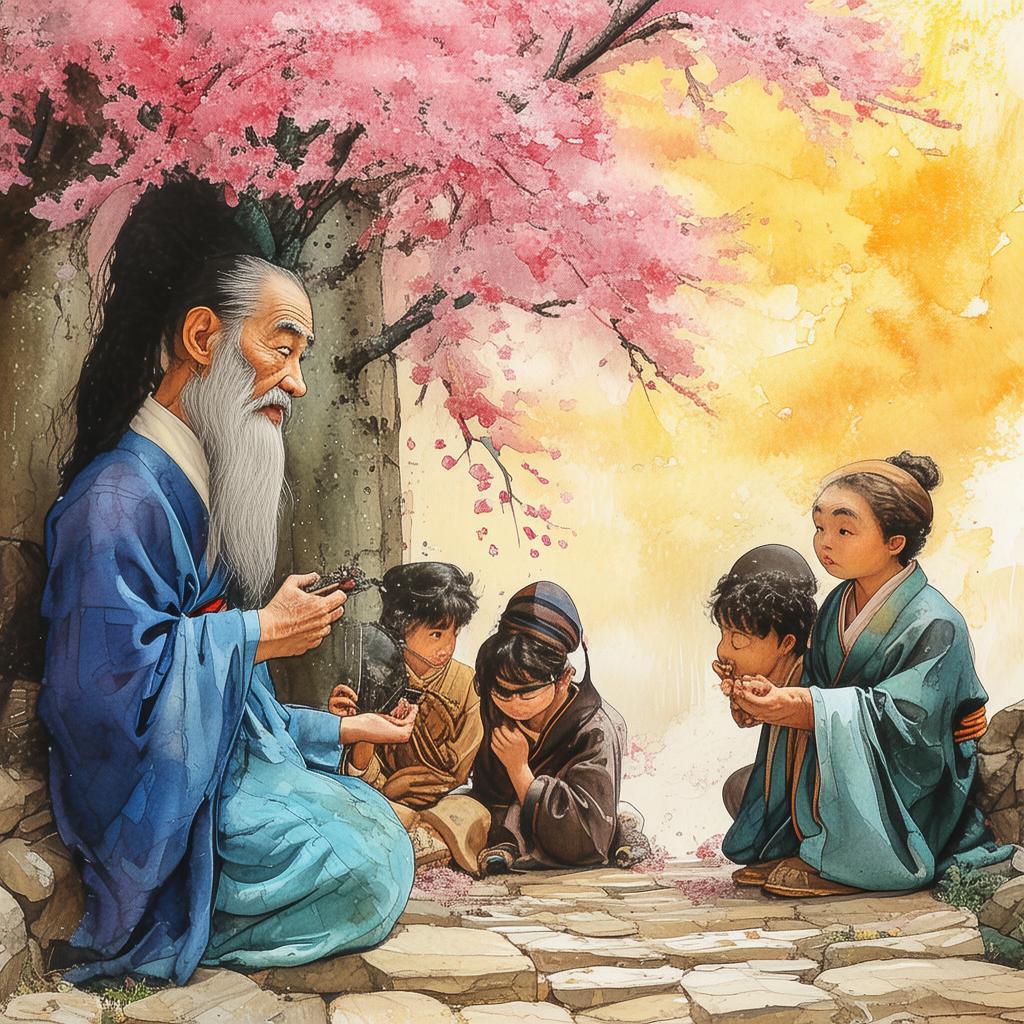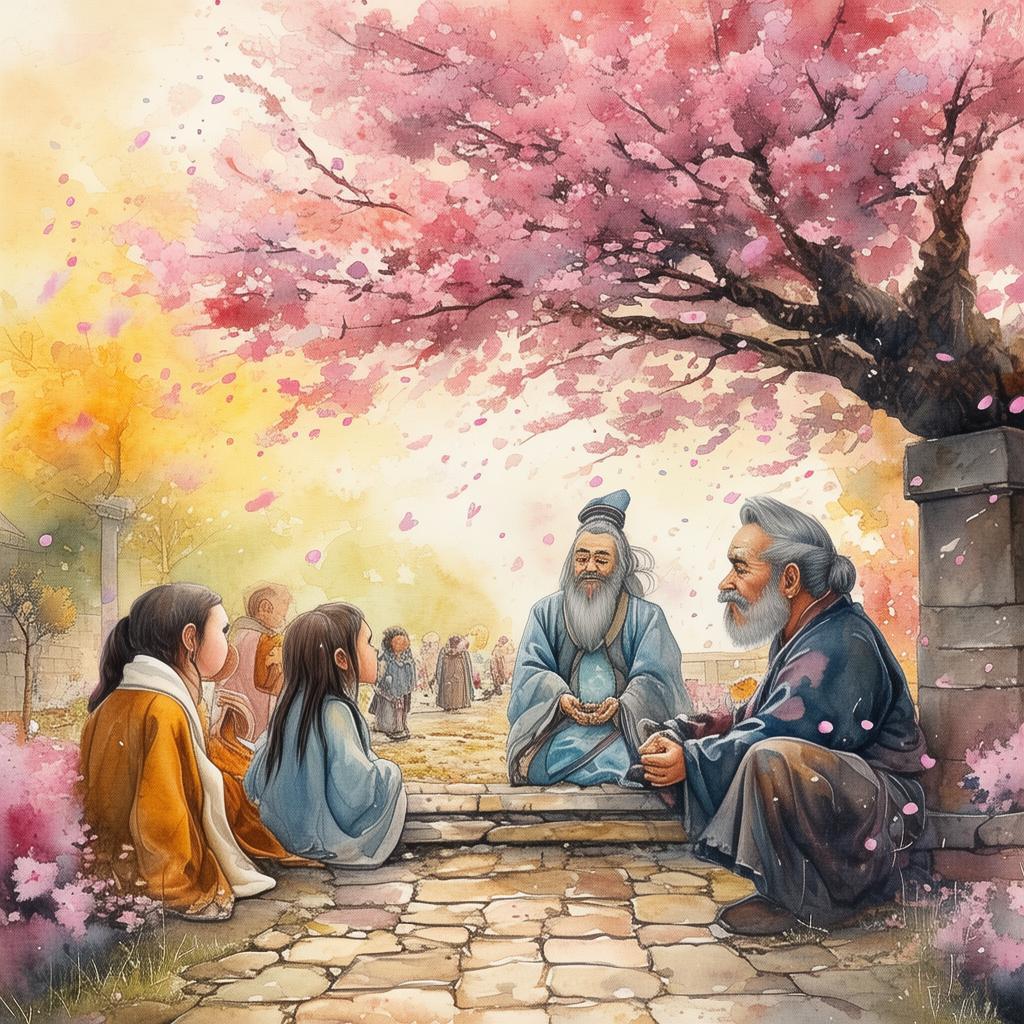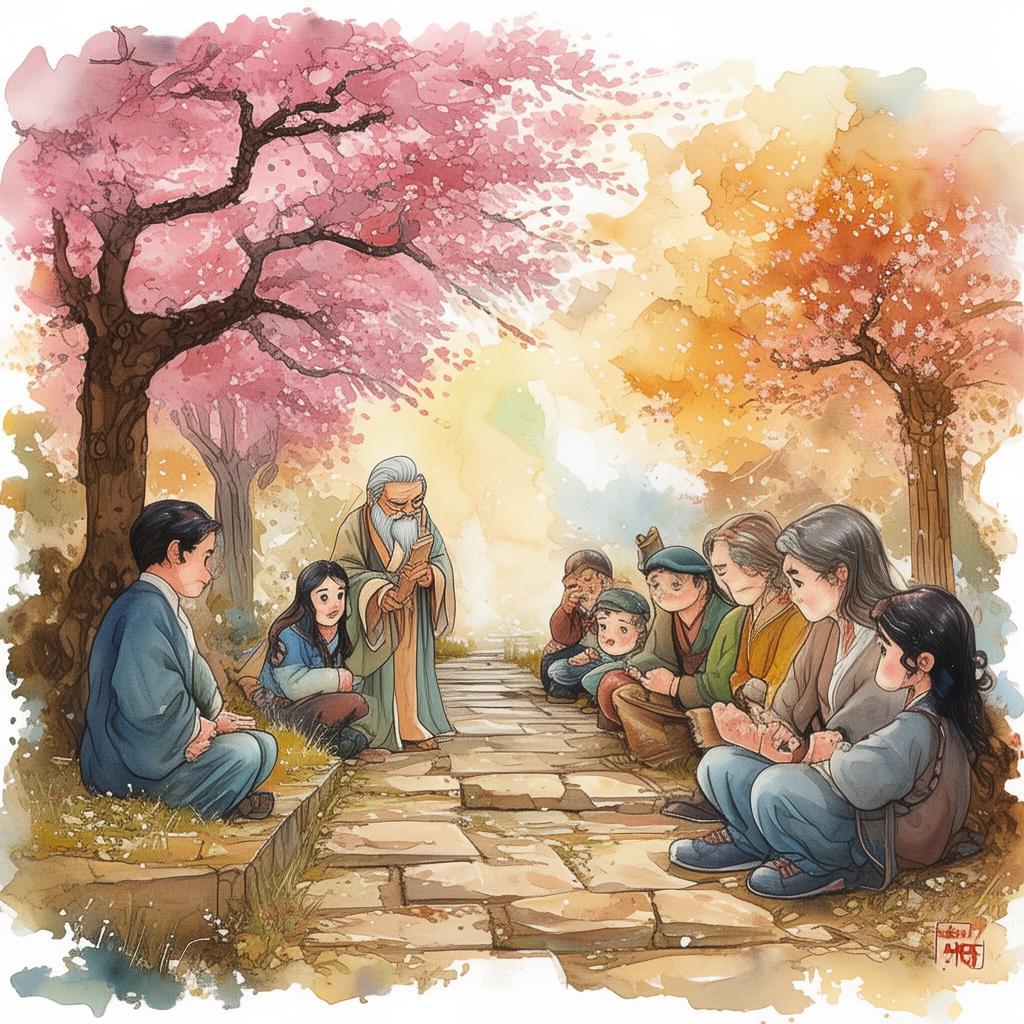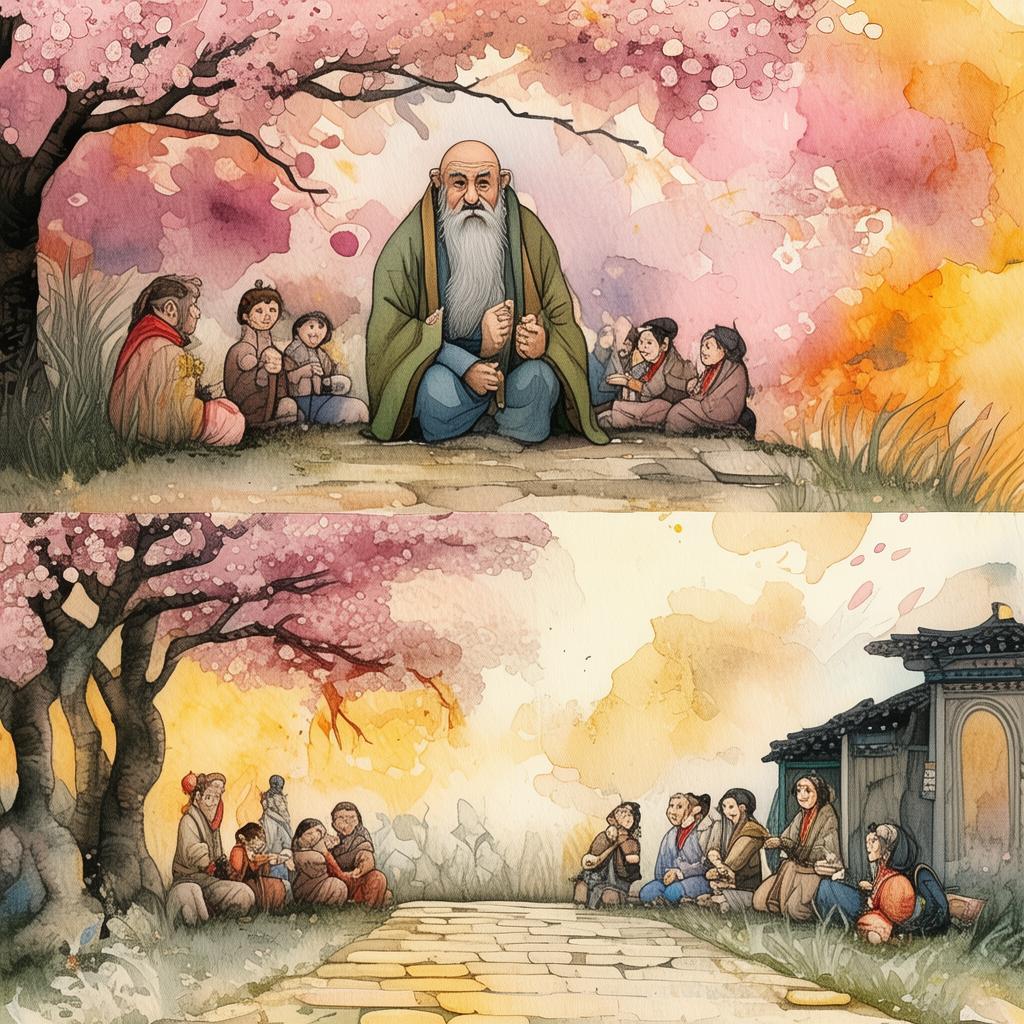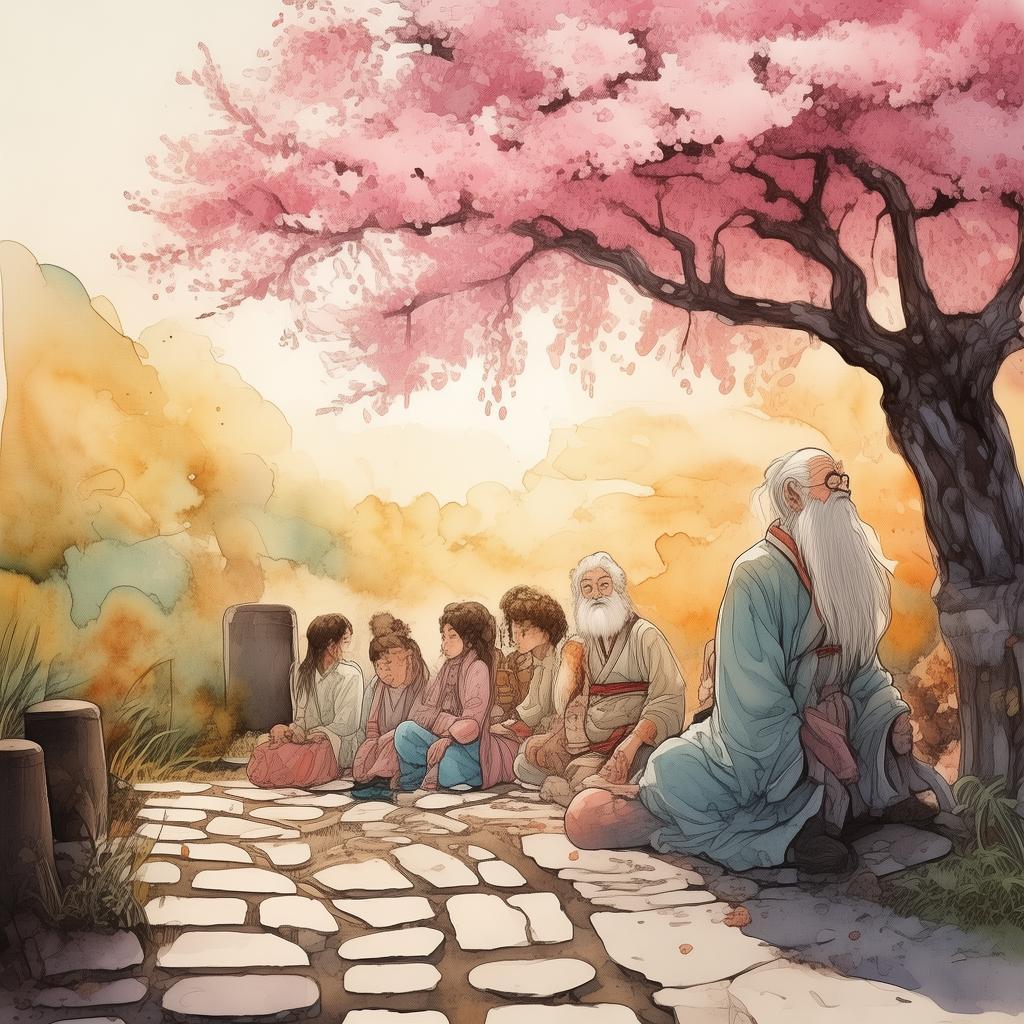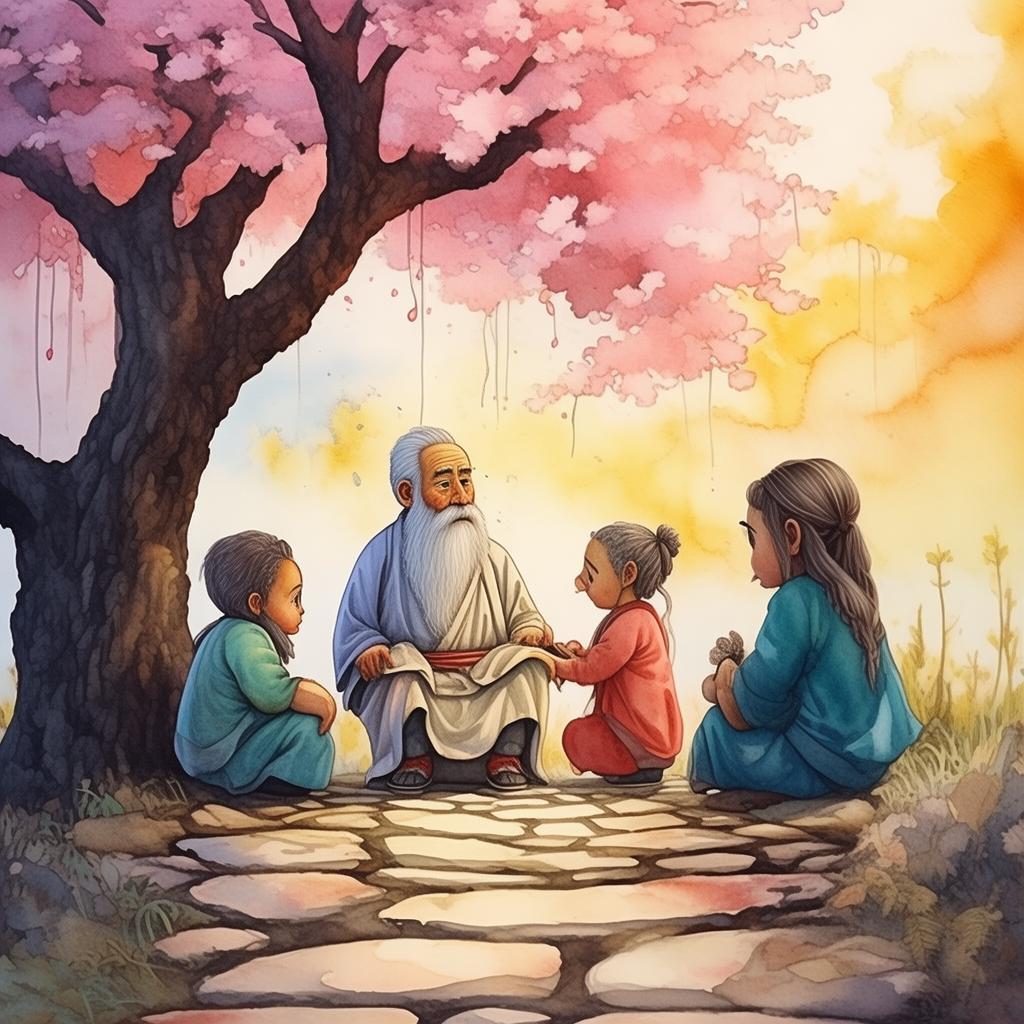Monk's Mysterious Melon: A Zen Zenith Quest
In the tranquil village of Zen Zenith, nestled amidst rolling hills and whispering bamboo groves, there lived a monk known far and wide as the Mutton Monk. His name was Vimala, and he was renowned for his wisdom, his gentle demeanor, and his peculiar diet of mutton, a choice that often left his fellow monks scratching their heads. But Vimala's diet was no ordinary monk's fast; it was a test of his commitment to the teachings of his Zen master, who had once said, "The truest way to enlightenment is to eat what you must and discard the rest."
One bright and crisp morning, as the sun's first rays filtered through the dense canopy of the bamboo groves, Vimala was meditating in his small, unassuming cell. The air was filled with the sweet scent of blooming jasmine, and the soft rustling of leaves provided a natural lullaby. Suddenly, he felt a presence.
Opening his eyes, he saw a vision, a melon, not just any melon, but one that seemed to glow with an ethereal light, pulsating with a rhythm that spoke of ancient wisdom. The melon was unlike any he had ever seen, its skin a deep, iridescent green that seemed to shift colors with the light.
The vision faded, leaving Vimala in a state of profound contemplation. He knew then that the melon was a sign, a quest to be undertaken. With a bow to his fellow monks, he announced his departure on a quest for the fabled zesty melon of Zen Zenith.
The journey began with a simple enough premise: he was to seek out the melon and, upon finding it, to consume it and share its essence with the community. But as Vimala ventured deeper into the heart of Zen Zenith, the quest took on a life of its own.
He encountered many challenges along the way, each testing his resolve and his understanding of the Zen path. One day, he met an old woman who sold only the most exquisite tea leaves, leaves that were said to be imbued with the essence of the melon itself. "If you wish to find the melon," she said, "you must first learn to taste the tea."
Vimala spent days in her humble tea shop, learning the subtle art of tea preparation, and in doing so, he discovered that the essence of the melon was not a physical thing but a state of being, a Zen Zenith of awareness and presence.
As he journeyed further, he encountered more challenges. One day, he found himself in the middle of a fierce storm, the kind that seems to rend the very fabric of the world. He sought shelter in a small, abandoned cottage, where he found an old scroll that spoke of the storm as a metaphor for the mind, "The storm rages within us, yet we can find calm in the eye of the storm."
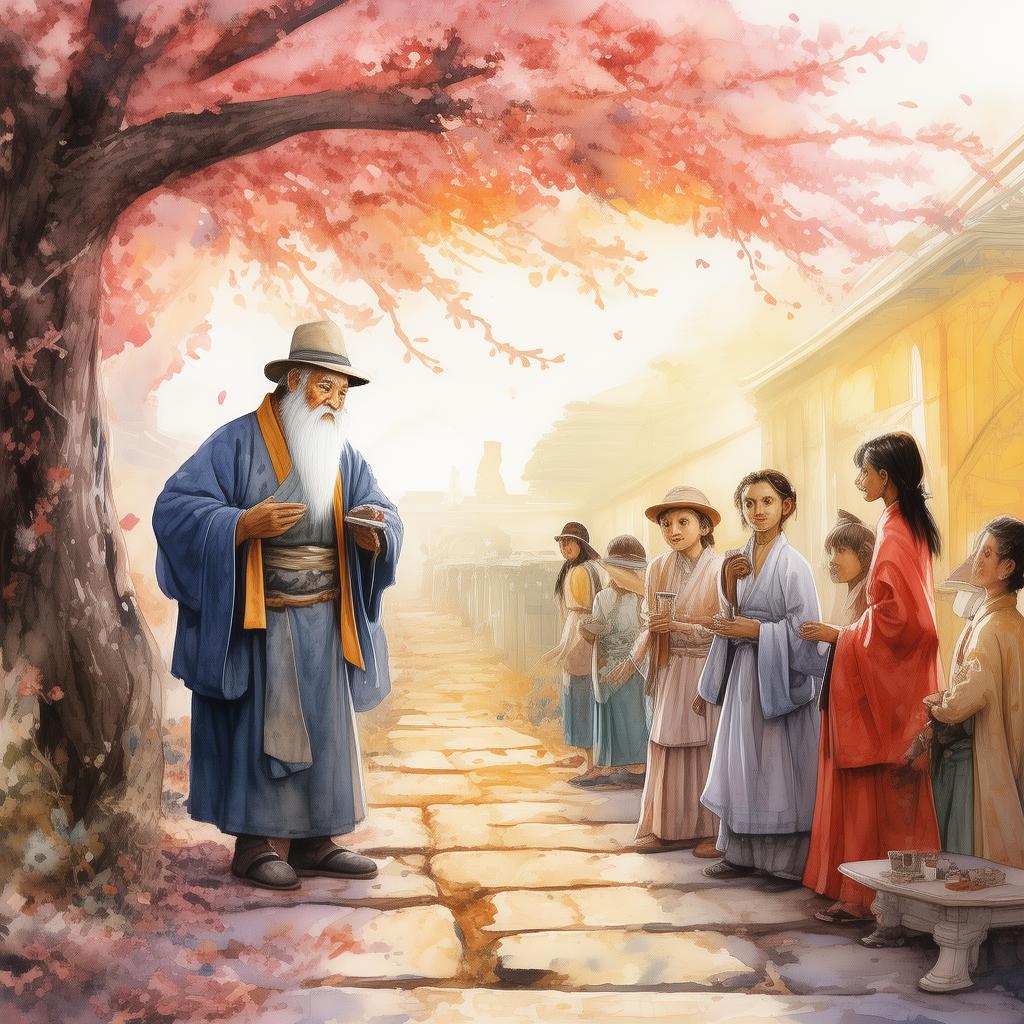
In the eye of the storm, he found not just calm, but a profound sense of peace. He realized that the journey was not about finding the melon, but about finding that inner calm, that Zen Zenith of the mind.
Finally, after many days and many trials, Vimala found himself standing before a great, ancient tree, its branches laden with fruit that seemed to dance with the wind. It was here, at the Zen Zenith of the journey, that he found the fabled melon. It was no longer the glowing, ethereal fruit of his vision but a simple, ordinary melon, its skin a deep, earthy green.
He took a deep breath, closed his eyes, and ate the melon. The taste was sweet, yet it seemed to have no taste at all. It was in that moment that he understood the true nature of the quest. The melon was a symbol, a way to teach him that the essence of enlightenment is not in the external world, but in the present moment, in the now.
Vimala returned to the village, not as a monk with a prize, but as a monk who had found the Zen Zenith within himself. He shared his experience with the community, and from that day on, the village was known not for its melons, but for its monks who had found enlightenment in the simplest of things.
The story of the Mutton Monk and the Zen Zenith Melon became a legend, a tale of a journey that taught that the quest for enlightenment is not about finding an external object, but about finding the peace and clarity that reside within each of us.
✨ Original Statement ✨
All articles published on this website (including but not limited to text, images, videos, and other content) are original or authorized for reposting and are protected by relevant laws. Without the explicit written permission of this website, no individual or organization may copy, modify, repost, or use the content for commercial purposes.
If you need to quote or cooperate, please contact this site for authorization. We reserve the right to pursue legal responsibility for any unauthorized use.
Hereby declared.
